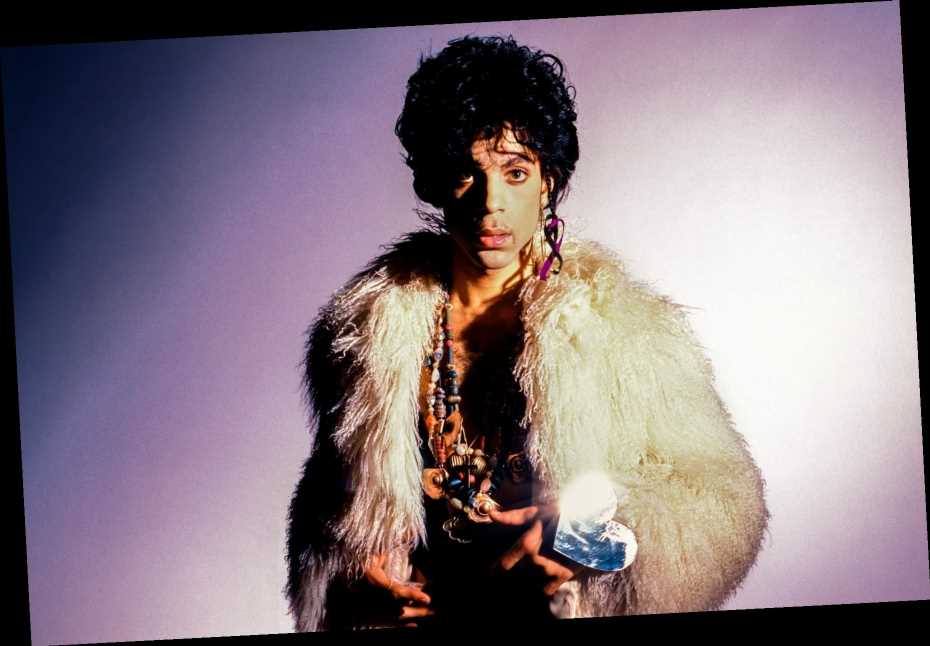By 1987, Prince was as much an authority on love and sex as the era’s foremost expert, Dr. Ruth, so it’s curious that he composed two songs titled “Love and Sex” around that time and never officially released either. The first, a horny, synthy rave-up, finally came out three years ago on the artist’s posthumous Purple Rain box set, and now the second and more romantic “Love and Sex” has finally emerged on a supersized Sign ‘O’ the Times collection. “Look at us, two children in a grownup world playing around, with love and sex,” he sings over grinding, hard-rock guitar riffs that somehow bridge his voice into a pop song. He likens love and sex to “an emotional merry-go-round,” but that dizzying effect could also apply directly to Prince at the time.
If you were one of the artist’s friends at the time, you might have worried about him. After trying to best Purple Rain’s success with the box-office bomb Under a Cherry Moon, he was behaving like a man who knew his fate, frantically fitting in everything he could into all hours of the day. Sign ‘O’ the Times was an eclectic funk-pop-rock-R&B-gospel-novelty hodgepodge of songs about love, sex, and Jesus that sounds awful on paper — what great record this side of Little Richard could include the phrase “green eggs and ham,” as Prince deadpanned on “Housequake,” and still work? — yet it was a masterpiece. Its very lack of focus was its greatest strength.
It seems like even more of an achievement after sifting through the nearly four hours of previously unreleased tracks like “Love and Sex” on Sign’s super-deluxe reissue. He had no singular vision at the time: he was recording songs for a double LP called Dream Factory, a triple LP titled Crystal Ball, a novelty side project where he sped up his voice like a Chipmunk and called himself Camille, a stage musical he wisely abandoned, a project for Bonnie Raitt, a collaboration with Miles Davis, and on and on. It’s impossible to trace his thought process, which makes it all the more exciting to find the diamonds he left in the vault.
His original “I Could Never Take the Place of Your Man,” from 1979, rocks as hard as anything the Cars were doing at the time, making it all the more impressive that he turned it into a grand pop song on Sign while adding a “Whole Lotta Love”–style breakdown jam in the middle. An acoustic version of the ballad “Forever in My Life” shows an even softer side to the song. Similarly, his rough drafts show how “The Ballad of Dorothy Parker” transitioned from a brassy horn workout into the LP’s dark-hued tale of him deflecting a woman’s affection and how “Strange Relationship” evolved from an Indian raga–funk fusion, like if George Harrison got deep into George Clinton, into taut dance-floor burner on Sign.
Conversely, there are also tons of greatest misses — songs that could have been hits — if he’d only released them. He wrote the funky “Emotional Pump,” built on slap bass and P-Funk horns, improbably for Joni Mitchell. It’s obvious why she turned it down because the tune exudes the artist’s unique Purple power. The quartet of songs he wrote for Raitt — including the playful “Jealous Lover,” which he also once offered to the Bangles — show how seamlessly he could blend mainstream blues rock with James Brown horns. He commands “Train” with Stax-Watt verve and “Adore”-style raving, croons about “erotic rebellion” and grinds out a trapeze act of a guitar solo over midtempo R&B on “Adonis and Bathsheba,” and blurs the lines between Marvin Gaye and himself on the “Got to Give It Up”-like “The Ball.”
The notoriously insular artist, who somehow achieved Sign’s loose, party vibe recording the album all by himself, also showed he could play well with others on the live-in-the-studio version of “Power Fantastic” that features the Revolution on one of their last recordings with him.
But there are also a few duds here. “Can I Play With U,” which he sent to Miles Davis for a solo, is too funky and busy to show off either’s greatness. There’s a high quotient of Zappa-esque jazz noodling throughout that will try even hardcore fans’ patience, and the trio of tunes he wrote for a musical called The Dawn would not win in a duel against Aaron Burr.
But the box set’s live material brings it all back into focus, since by then Prince had committed to his scattered vision for Sign ‘O’ the Times in all its mad glory. The live album here, recorded in Utrecht, Holland a week before he filmed the Sign ‘O’ the Times concert film (strangely absent here), was as widely bootlegged as The White Album and shows how they could alchemize Duke Ellington’s “Take the ‘A’ Train” into “I Could Never Take the Place of Your Man,” and “Play in the Sunshine” into “Little Red Corvette.” There are some sloppy moments that are actually nice to hear as a reminder that Prince was, indeed, human. The DVD contains raw footage from his Paisley Park New Year’s celebration from 1987, and it’s still inspiring to see how much energy he had. The encore is a rendition of “It’s Gonna Be a Wonderful Night” that lasts half an hour with Prince and Sheila E. swapping drums and the microphone and a cameo by Miles Davis, whom Prince merely dances around — the king of the world minding his own bad business.
Source: Read Full Article
